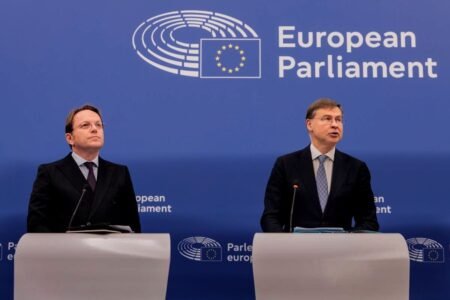The European Commission’s Health Emergency Preparedness and Response Authority (HERA), working with the Belgian EU Presidency, launched on 24 April the Critical Medicines Alliance. The Alliance brings together national authorities, industry, healthcare organisations, civil society representatives, the Commission and EU agencies to identify the best measures to address and avoid shortages of critical medicines.
Advertisement
(adsbygoogle = window.adsbygoogle || []).push({});
What is the Critical Medicines Alliance?
The continued availability of medicines in the EU is essential. For this reason, the Commission recognised in a Communication on Addressing medicine shortages in the EU from October 2023 that a new approach to better tackle medicines shortages was needed, also addressing the industrial dimension. The Critical Medicines Alliance (Alliance) is one of the structural measures complementing regulatory measures such as the proposed EU pharmaceutical reform. It is at the centre of the new strategic and coordinated industrial approach to enhance security of supply of the most critical medicines.
The Alliance is a consultative mechanism which brings together the Commission, Member States, the industry, patients and healthcare professionals. Together, they will identify actions in the field of industrial policy and propose solutions to strengthen the supply of critical medicines in the EU, better prevent and combat their shortages. The Alliance draws on the experience built by other EU industrial alliances such as the Battery Alliance or the Critical Raw Materials Alliance.
What are the key objectives of the Alliance?
As a first step, the Alliance will look at ways to address the weaknesses identified in the supply of critical medicines through:
- strengthening manufacturing capacities in the EU via the leveraging of EU and national funding, taking advantage of the creation of the Strategic Technologies for Europe Platform (STEP) and using market incentives such as capacity reservation contracts or joint procurement.
- diversifying international supply chains of the most critical medicines in a collaborative and coordinated manner with the development of joint projects and strategic partnerships with third countries.
The work of the Alliance will focus on industrial policy. It will not cover regulatory topics already covered by the existing pharmaceutical legislation or the April 2023 Commission proposal revising this legislation.
What will the Alliance deliver?
The Alliance will advise the Commission and other EU decision makers on the most appropriate actions and instruments in the field of industrial policy to tackle shortages of critical medicines. The Alliance will draw on a set of already available tools:
- STEP, to identify industrial projects in the field of biotechnologies and pharma industry and facilitate proper coordination of funding for them;
- support of advanced and innovative green technologies possibly as part of a new Important Project of common European interests (IPCEI);
- boost manufacturing capacities for critical medicines, based on the identified vulnerabilities through different instruments such as a possible Services of General Economic Interest (SGEI);
- partnerships with third countries to improve the security and continuity of supply;
- market incentives, such as capacity reservation contracts;
- public and joint procurement to enhance security of supply of critical medicines especially in the smaller markets and support enhanced predictability through multi-annual contracts.
The first Alliance recommendations will be detailed in Strategic Plan, presenting actions for several years. It will support the Commission, Member States, and industry representatives in the implementation of measures to enhance the security of supply of critical medicines.
What is the governance structure of the Alliance?
The Alliance consists of several bodies:
The Forum is open to all Member Organisations and convenes at least once a year to discuss high-level policy matters concerning the Alliance. For instance, the Forum will be responsible for endorsing the Strategic Plan prepared and adopted by the Steering Board.
The Steering Board comprises six representatives of the Member States (two for each representative of the trio presidency, currently Belgium, Spain and Hungary), five representatives of the industry, two representatives of patients/consumers/healthcare professionals, one representative of the Executive Steering Group on Shortages and Safety of Medicinal Products (MSSG), one representative of the European Medicines Agency (EMA), and all chairs of the Working Groups (upon their formation). Its responsibilities include:
- preparing and adopting the Strategic Plan;
- ensuring coherence and integration across the work of various working groups and with other existing structures;
- regularly updating a roadmap outlining the implementation of the actions proposed by the Alliance, drawing on inputs from the Working Groups;
- supporting the European Commission in facilitating, communicating, and monitoring the work of the Alliance.
Two Working Groups are being set up by the Commission to provide input to the Steering Board, one on Strengthening manufacturing capacities in the EU and one on Diversifying supply chains, international partnerships and cooperation. These groups are open for participation to Member Organisations with relevant activities and expertise related to the designated Working Groups area of work. Their composition will be decided on the basis of representativity, diversity and inclusiveness.
How are decisions reached?
Decisions of the Steering board and the working groups are reached through consensus. In case of a vote, the result will be determined by a simple majority of the respective body.
How does the Alliance use the Union List of Critical Medicines published by the EMA?
The Commission launched a pilot exercise to analyse the vulnerabilities in the supply chains of an initial set of 11 substances from the EU list of critical medicines. The Alliance’s efforts will initially focus on the outcomes of this analysis.
Subsequently, the Commission will assess the vulnerability of the supply chain of some other critical medicines in the Union list.
How does the Alliance work with other forums?
The Alliance works with and complements the work of the following groups by focussing on the industrial dimension of critical medicines shortages:
- Executive Steering Group on Shortages and Safety of Medicinal Products ‘the Medicines Shortages Steering Group’ (MSSG)
Given its consultative nature, the Alliance does not interfere with the mandate of the MSSG or duplicate its efforts in managing critical medicines or medicine shortages. Instead, the Alliance takes into consideration the work of the MSSG and communicates its recommendations to the MSSG. The two co-Chairs of the MSSG are members of the Alliance Steering Board.
- Joint Industrial Cooperation Forum (JICF)
The scope of the JICF‘s work focuses on medical countermeasures and their raw materials more generally and is thus different from the Alliance. The Alliance considers the work of the JICF in addressing bottlenecks of medical countermeasures and leverages the expertise of its members to substantiate its work, specifically in matters related to critical medicines.
Why is the Alliance open to entities from non-EU countries?
Most shortages are related to medicines, or their active pharmaceutical ingredients, that are predominantly manufactured outside the EU. The Alliance’s primary goal is to reduce the risk of medicine shortages by identifying vulnerabilities in the whole supply chain and proposing ways to tackle them. This can include proposals for new partnerships with third countries or actors to diversify supply.
Who applied to be members of the Alliance?
The Commission’s Health Emergency Preparedness and Response Authority (HERA) received over 250 applications from 36 different countries. Applications came from:
- 24 Member States (ministries of governmental agencies);
- 135 industry representatives (companies or organisations);
- 43 NGOs; and
- 50 non-EU applicants.
At the launch date, there are more than 250 registered members, and the Alliance remains open to new members throughout its operation.
Who can be a member of the Alliance?
The Alliance is open to public and private entities with relevant activities in the area of research, production, distribution, delivery and use of medicines industry (pharma, chemistry, biotech, finance, logistics and all relevant stakeholders, including the civil society representatives). This includes companies and associations, healthcare professional organisations, healthcare organisations, social partners, education and training providers, research and technology organisations, distributors, investors, civil society organisations, and representatives of EU Member States, regional and public authorities.
The work of the Alliance shall be without prejudice to rules applicable to EU’s funding instruments and shall be in compliance with competition rules and EU’s international commitments.
An organisation’s membership of the Alliance is conditional on the signature and compliance with an Alliance’s Declaration, including a competition compliance programme.
What is the link between the Critical Medicine Alliance and the Critical Medicines Act?
The Alliance is a consultative mechanism which is a direct policy response to the need to enhance security of supply of critical medicines and to identify possible action at EU and global level. The work of the Alliance could pave the way for a possible Critical Medicines Act in the future. This would require thorough preparation, including the assessment of economic aspects. A dedicated study has already been launched in that respect, as announced in the Commission communication on addressing shortages of EU medicines of October 2023. Concrete decision on the need, content and feasibility of such an Act is a political decision which will be taken by the Commission in due course, based on up-to-date and relevant scientific evidence.
Source: European Commission







